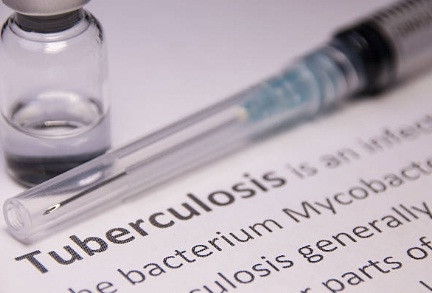America
Body's response to different strains of TB could affect transmission

New York, April 17
Two strains of the bacterium causing tuberculosis have only minor genetic differences but attack the lungs in a completely different fashion, says a new study.
The findings, published in the journal Nature Communications, may help break the cycle of rapid transmission of TB, the second-leading infectious killer in the world after Covid-19, according to the World Health Organisation.
"These findings implicate strain differences as having an important effect on the response of lung alveolar macrophages and how tuberculosis manifests itself in the body and how it is transmitted," said researcher Padmini Salgame fromARutgers University in the US.
To better understand transmission and how it relates to treatment outcomes, the researchers focused on the impact these two strains of Mycobacterium tuberculosis have on the lungs.
Though the strains differ slightly in their gene sequences, one is regarded as "high transmission" because it spreads easily and the second as "low transmission" because it does not infect as readily. TB bacteria are spread through the air when persons with TB disease in their lungs cough, speak or even sing.
Using strains identified in a collaborative study with researchers comparing "high transmission" and "low transmission" households of people with TB, the scientists studied the immune pathways that the pathogen triggered in the lungs of the infected mice.
In mice infected with the high transmission strain, their lungs quickly formed clumps of immune cells known as granulomas that encased the invading bacteria, stopping the development of a more virulent disease.
In most cases, the granulomas broke down eventually, spilling their contents. Researchers believe that if the escaped bacteria are close enough to the bronchial airway, they could be expelled into the air as infectious aerosols.
"By inducing granulomas with the potential to develop into cavitary lesions that aids bacterial escape into the airways, high transmission M. tuberculosis strains are poised for greater transmissibility," said Salgame.
In mice infected with the low transmission strain, the invading bacteria were slow to activate the lung alveolar macrophages and ended up producing patches of inflammation within the lungs that did not allow the bacteria to escape into airways and allowed them to conglomerate and intensify the infection, the researchers said.

47 minutes ago
Cryptocurrency playing key role in drawing Trump closer to Pakistan: Report

48 minutes ago
EAM Jaishankar travels to Canada for G7 Foreign Ministers' meeting

3 hours ago
NIA takes over Delhi blast case

5 hours ago
Allu Arjun says 'I wish for peace to prevail once again' after the horrific Delhi blast

5 hours ago
Hema Malini expresses anger over false reports of Dharmendra's demise: 'What is happening is unforgivable'

5 hours ago
SRK, Aryan Khan pay visit to Dharmendra in hospital

5 hours ago
Canada offers condolences over deadly Red Fort blast in Delhi

5 hours ago
Delhi blast: Family members of Kashmiri doctors say they had no inkling of terror involvement

5 hours ago
Team of 500 officials formed to investigate Delhi blast

5 hours ago
Delhi blast: Probe finds Dr Umar from Pulwama was driving suspect car

5 hours ago
Delhi blast: Locals as well as natives of UP and Uttarakhand among victims

5 hours ago
J&K's white collar terrorists involved in Delhi blast

5 hours ago
Suicide attack to avoid getting caught, cause maximum damage: Sources on initial Delhi blast probe






















